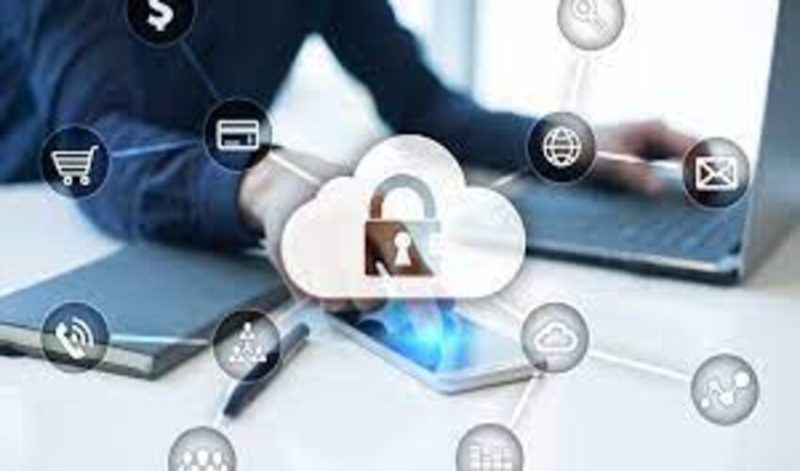
Which System Can You Use to Protect Customer Information?
Last updated on April 16th, 2024 at 11:10 am
In the present digital times, companies are handling mass amounts of data. When it comes to customer information, companies need to be extra careful. They are responsible for the safekeeping of customer data, starting with their personal information and going up to their financial details. As a customer, you have every right to ask about the company’s privacy policy. Online platforms and their support services like Cox customer service number are ideal for seeking this kind of information.
Thus, companies need to apply robust consumer protection systems. Taking this matter lightly will not only harm the brand image, but can also put the company at serious legal risk. This blog will explore different systems that can be employed to maintain data security of valuable customer information, giving the right knowledge when it comes to the security and privacy of data.
Encryption Systems
Encryption allows for the formatting of data into an incomprehensible format. It is the cornerstone of data security. Even in cases of data breach, third parties will not be able to make sense of the data at hand. There are two kinds of encryption:
Symmetric Encryption
Through a single key, data is encrypted or decrypted. While reliable, there are challenges when it comes to key sharing.
Asymmetric Encryption
A pair of keys are used in this method. A public key for encryption and a private key for decryption. Though more secure, it is also time-consuming as the private key is kept a secret.Firewalls
Firewalls are the layer of protection between a company’s internal networks and all external threats. They help in filtering all incoming and outgoing traffic on a security basis. A well-configured firewall can protect the company’s network and data from external threats and unauthorized access.
Intrusion Detection and Prevention Systems (IDPS)
An IDPS system helps supervise traffic for all sorts of suspicious activities. From possible hacking to data breaches, everything is monitored. This system deals with threats in real-time, saving the company from any kind of data compromise.
Access Control Systems
Setting up an Access Control System will prevent unauthorized personnel from accessing customer data. This could be done through role-based access control (RBAC) or two-factor authentication (2FA). This will significantly improve data security.
Data Back Up and Recovery Systems
Make sure to regularly back up valuable data. For this, the company needs to have reliable recovery systems in place. In case of any breaches or cyberattacks, recovery systems will ensure the protection and restoration of valuable customer data, minimizing downtime.
Security Information and Event Management (SIEM) Systems
By consolidating and analyzing data from multiple sources, an SIEM system can identify any potential threats. To keep an all-around check, SIEM allows for proactive mitigation of threat.
Data Masking and Redaction
In certain situations, a company is required to share its customer data for analytics or testing. However, sensitive data will still need to be protected. Data masking and redaction make this easier by hiding sensitive data, and making sure authorized individuals can only access a limited amount of information.
Endpoint Security
With the rise in remote work, endpoint protection of devices like laptops and smartphones is vital. Through endpoint security, a company can activate real-time security systems by monitoring devices, activating malware protection, and encrypting data on each device. This will help in minimizing the chances of data breaches.
Secure Cloud Servers
As companies take on cloud services to manage valuable data, they must realize the importance of keeping their servers secure. Companies should go for reputable cloud servers that provide a robust set of security features like encryption, security audits, access controls, and so forth.
Security Audits
It is important to carry out regular audits. This will help in identifying any potential risks or threats that your data may be facing. By actively working on weaknesses and catching them in time, your company can save itself from bigger troubles.
Conclusion
To conclude, protecting customer data is not just an ethical concern for any company, but it is also a legal requirement. Any company needs to make use of the right security systems and practices that are crucial in establishing customer trust as well as maintaining their data security. The system any company chooses is dependent on its personal needs and its budget.
Author Bio
Thomas Coley is a seasoned cybersecurity expert, dedicated to safeguarding digital privacy. With years of experience in the field, he offers invaluable insights on protecting sensitive information in an increasingly connected world. In “How to Protect Your Digital Privacy,” Thomas provides practical advice on securing your online presence, emphasizing the importance of strong passwords, encryption, and data protection. When not advocating for digital security, he can be found assisting users with their concerns, including Cox customer service number inquiries. Thomas’s mission is to empower individuals to navigate the digital landscape safely and protect their valuable data.

Aimee Garcia is a senior editor at ReadDive. She has 5+ years of experience in Digital Marketing. She has worked with different IT companies.
